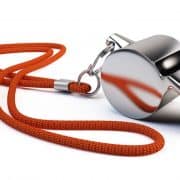|
Getting your Trinity Audio player ready...
|
Public procurement is particularly susceptible to corruption, says the UN Office for Drugs and Crime. Such corruption includes bribery, embezzlement, abuse of power, collusion to fix prices, existence of cartels, and other practices that result in government not receiving value for money in the procurement process.
This sector in our own country was the scene of a veritable feeding frenzy when relaxed procurement regulations were issued at the start of the Covid-19 pandemic, exacerbating an already serious crisis of poverty, unemployment, and poor service delivery, and plunging South Africa into outrage and greater despair. To overcome this ongoing crisis, South Africa will need firm action that includes political will, consequences for offenders, open sharing of procurement contracts to enable third party monitoring – and better treatment of whistle-blowers.
As one method of fighting corruption in public procurement, the Public Affairs Research Institute (Pari) suggests, in a recent policy brief, “a mechanism that encourages whistleblowing and the recovery of civil damages arising in the course of fraudulent transactions perpetrated against the state.”
Encouraged whistleblowing, says Pari, is nothing new. Known as qui tam in law, it is an abbreviation of the Latin phrase qui tam pro domino rege quam pro se ipso in hac parte sequitur, meaning “[he] who sues in this matter for the king as well as for himself”. The concept is that private individuals who have first-hand information relating to corruption and who assist in a successful prosecution can receive, for themselves, all or part of the damages or financial penalties recovered by the government as a result of the prosecution.
Encouraged whistleblowing has been particularly successful in the US, since 1863 when President Abraham Lincoln introduced the False Claims Act, originally to target fraud in government contracting and against the government. Those in possession of such information – the whistle-blowers – were encouraged to institute a civil action in their name and that of the government and if their case succeeded they would receive half of a standard statutory civil penalty and half of the damages awarded.
The principle still holds today. Whistle-blowers stand to benefit, therefore, for bravely coming forward. In the current situation, in South Africa particularly, where they are more likely to lose a great deal, such a reward will enable them to still look after their families, especially as the Protected Disclosures Act, which is known as the Whistle-Blowing Act, makes no provision for a reward of any kind.
Such a provision is also, adds Pari, particularly useful and appropriate when the state is overwhelmed by and unable to prosecute large numbers of procurement corruption cases. In South Africa, the weakening of law enforcement agencies during the state capture period led to case backlogs and impunity for perpetrators, and continues to be a problem today across all types of criminal cases.
Whistle-blowing not truly encouraged in SA
People are urged to report corruption in South Africa, but the incentives are low while the risks are high.
As Corruption Watch, we deal with thousands of whistle-blowers who approach us through our various communication channels. Their stories inform our work, guiding us to focus on topics of particular significance, such as corruption in schools, the appointment of top leaders in law enforcement agencies, and the struggles of mining-affected communities.
Whistle-blowers provide a valuable service to the nation and the economy because they give tip-offs about health and safety risks, fraud, corruption, cover-ups, and other misdeeds, to people who are able to take the necessary steps. Through their revelations, illegal activities can be stopped, public and private money recouped, and lives can even be saved.
There are risks associated with blowing the whistle, but those who commit themselves to revealing the truth have not let themselves be deterred, despite the possibility of experiencing intimidation, vilification, coercion, even death. The tragic case of Moss Phakoe bears grim testament to the risks faced by reporters.
In South Africa, because whistle-blowers are not held in the esteem that they should be, a chilling effect has taken hold, deterring many a would-be reporter. This is one of the reasons that corruption has been allowed to establish itself so firmly and deeply – because those who can expose it are often silenced in one way or another.
Compensation for the whistle-blower
For whistle-blowers to truly feel encouraged, a few provisions must exist, Pari notes.
- A law establishing a violation, such as a fraudulent transaction with the state.
- The remedy for this violation must involve a financial penalty, such as a civil forfeiture or the recovery of damages suffered by the state.
- An encouraged whistleblowing provision then creates a private right to enforce this public law.
- In order to assert this right, a whistle-blower must be an original source, in the sense that they must have previously disclosed what is now public information, or they must have new information that is independent of, and adds materially to public information.
- The whistle-blower would work with an NGO who would refer the case to a specialist law firm to bring an action to court.
- If successful, the whistle-blower is rewarded with a portion of the forfeiture or damages awarded by the judge.
In modern times, Pari adds, the encouraged whistle-blowing provision must incentivise whistle-blowers while protecting public finances and interests. There are three ways of ensuring this:
- The potential financial penalty is enhanced, for instance, by legislating double damages for fraud in public procurement.
- The portion of these damages that a whistle-blower might receive is then defined by lower and upper limits, and it is left to the discretion of the presiding judge to set the rewarded portion within these limits.
- The action is lodged with a court under seal and kept confidential until hearings commence. In the meantime the state may decide to adopt the action as its own – if so, the upper and lower limits would be reduced because the state will incur costs in taking on the case.
As an example, someone defrauds the state of R10-million. The case is brought to court and damages of R20-million are awarded. If the state declines to adopt the action the whistle-blower will get, say, between 25% and 50% – that is, anything between R5-million and R10-million, awarded at the judge’s discretion. The state will get between R10-million and R15-million.
If the state does adopt, its costs will be taken into consideration. In this case the whistle-blower might walk away with an amount between R3-million and R6-million, and the state will get R14-million to R17-million.
Pari argues that in this way whistle-blowers will be dissuaded from bringing frivolous cases before the court – which can order them to pay the defendant’s costs if the case is found to be without merit – while encouraging desirable actions. Where the case has a chance of success, the whistle-blower will know that they can expect at least the lower limit of the award, and possibly more.
“The involvement of multiple, independent players in encouraged whistleblowing creates an elaborate web of accountability,” says Pari. “Bona fide whistle-blowers are likely to search out trustworthy whistle-blower-protection NGOs. These NGOs are more likely to want to refer them to specialist lawyers and firms who have built a reputation for integrity and professionalism. These law firms are more likely to be taken seriously by representatives of the state and the courts.”







